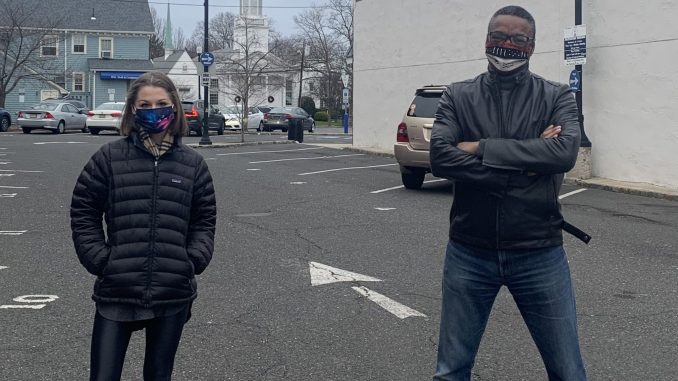
Layla Halterman, lahalterman@ursinus.edu
Writing and storytelling were always a passion for Les Trent. But he never knew it would eventually land him a national, televised role as a senior correspondent for “Inside Edition.” Trent received a degree in journalism from his alma mater, Seneca College. Trent was then awarded two journalism opportunities post-graduation. “I worked at a small newspaper in Fort Erie, Canada, and most nights, drove across the border to Buffalo [New York] where I worked the night shift in radio,” he said. Trent landed various positions in other national operations before spending the next 20 years working for “Inside Edition.”
A typical day looks different these days for Trent, who now meets his crew within driving distance(s). Before COVID-19 forced changes in March, Trent “would go to work on any given morning and could end up in a different city on a breaking story later that day. I have a wardrobe cabinet at work that is packed with anything I might need for last-minute travel–even ski wear.”
Trent has covered several difficult stories over the last few decades, from events of 9/11 to deadly shootings. He vividly recalls the Sandy Hook Massacre and walking with his crew on school grounds. He saw a mother running towards the school strung with fear and told his cameraman to put the camera down. “My initial instinct would have been to ask her if she had a child at the school. But in that moment, your humanity takes over from your professional self,” Trent stated.
Likewise, Trent has also covered numerous “Black Lives Matter” (BLM) stories which he believes puts more pressure on him to get it right. In those moments when reporting, he feels the pain that earlier generations of black folks have dealt with. Trent has experienced racism in the business and recounts a time where he was overlooked for a promotion. It was “not because I wasn’t as qualified, if not more, than my white counterpart who was awarded the job, but because someone in power simply couldn’t see a black person in that role,” Trent explained.
He sleeps soundly knowing that “the spotlight is finally being shone on the discrepancy between how we’re viewed — that Black men are not always treated fairly.” Trent remains hopeful that change is in sight but is simultaneously afraid that a black person will always be required to demand it. He is heartened by the diverse faces he sees in crowds fighting and protesting for change, and asserts his pride when reporting.
Trent advises students to have a goal but not to fear the obstacles that may come along with it. “You have to be hungry, and a bit of a nuisance,” he exclaims. Trent has shattered ceilings but desires to be remembered for his great qualities — optimism and humor. “I want people to recognize the love I bring to every story, and the respect I have for those who entrust me with their stories.” Not only does he give audiences Les, he gives them more.
